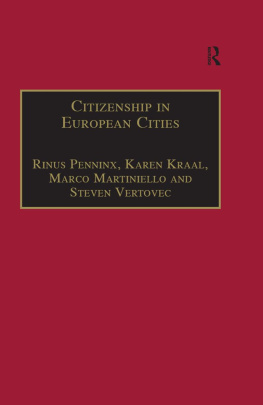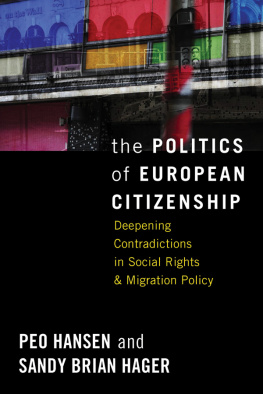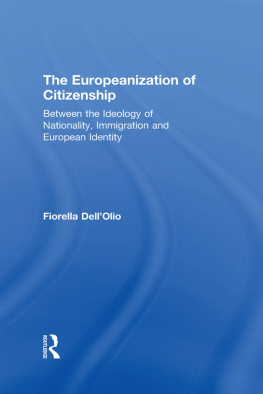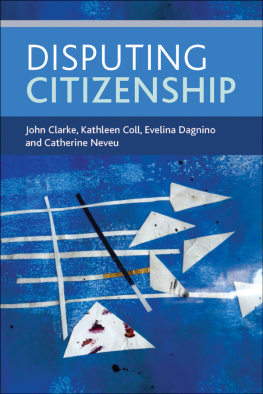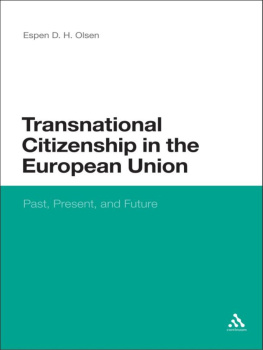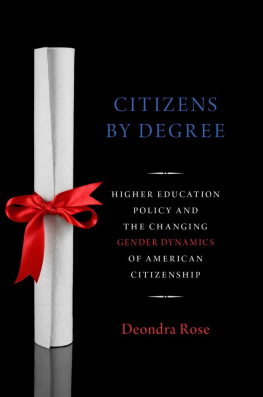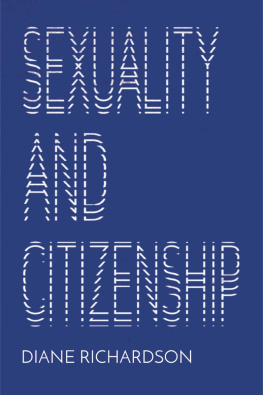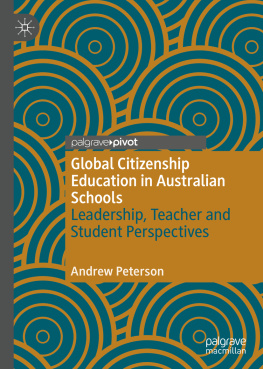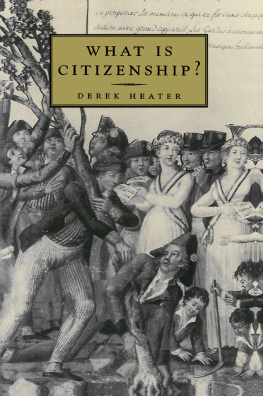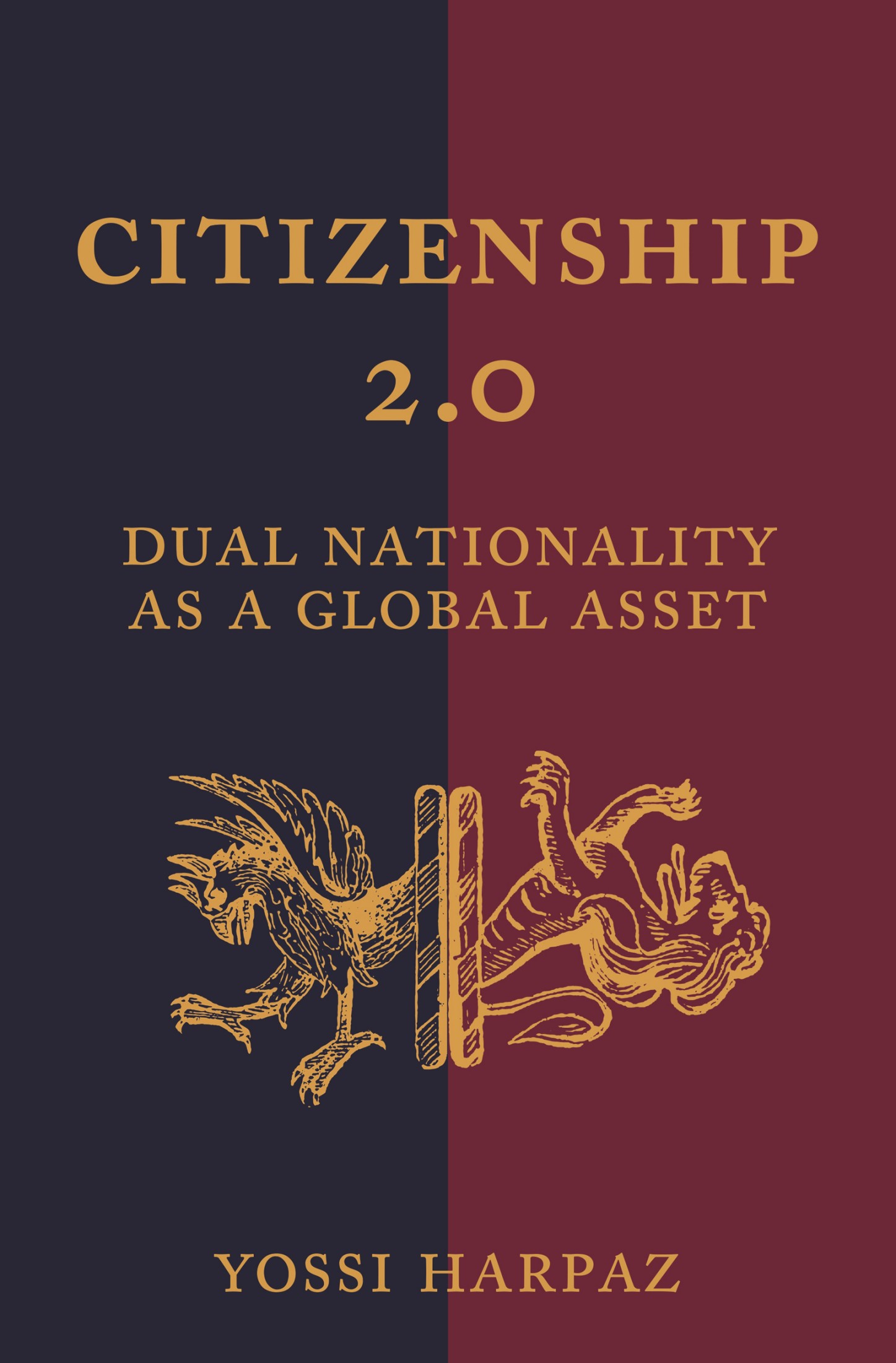CITIZENSHIP 2.0
Princeton Studies in Global and Comparative Sociology
Andreas Wimmer, Series Editor
Citizenship 2.0: Dual Nationality as a Global Asset by Yossi Harpaz
Nation Building: Why Some Countries Come Together While Others Fall Apart by Andreas Wimmer
The Paradox of Vulnerability: States, Nationalism, and the Financial Crisis by John L. Campbell and John A. Hall
Citizenship 2.0
Dual Nationality as a Global Asset
Yossi Harpaz
PRINCETON UNIVERSITY PRESS
PRINCETON AND OXFORD
Copyright 2019 by Princeton University Press
Published by Princeton University Press
41 William Street, Princeton, New Jersey 08540
6 Oxford Street, Woodstock, Oxfordshire OX20 1TR
press.princeton.edu
All Rights Reserved
LCCN: 2019942872
ISBN 978-0-691-19405-9
ISBN (pbk.) 978-0-691-19406-6
eISBN 9780691194578
Version 1.0
British Library Cataloging-in-Publication Data is available
Editorial: Meagan Levinson and Jackie Delaney
Production Editorial: Nathan Carr
Jacket/Cover Design: Layla Mac Rory
Production: Erin Suydam
Publicity: Nathalie Levine and Kathryn Stevens
The passport is the noblest part of a person. It isnt generated in the plain and simple way people are. A person can be begotten anywhere in the world, in the most frivolous of waysbut not a passport. Thats why a passport, so long as its a good one, is recognizedwhereas a person can be ever so good and yet be denied recognition.
BERTOLT BRECHT,CONVERSATIONS IN EXILE
It becomes more and more clear that, when that religious adoration of the state, which makes it into a mysterium and a transcendent institution, is shaken, along with it goes the reverent and pious relationship. Henceforth, individuals see only the side of the state that can be helpful or harmful to them, and press forward by any means to gain influence over it.
FRIEDRICH NIETZSCHE,HUMAN, ALL TOO HUMAN
CONTENTS
CITIZENSHIP 2.0
Introduction
For most of the twentieth century, citizenship was an exclusive bond between an individual and a state. Countries refused to share their citizens with other countries just like they do not share their territories. Since the 1990s, the principle of exclusive citizenship has been abandoned, and dozens of countries moved to permit dual citizenship. Today, toleration of multiple citizenship has become the norm, and tens of millions of persons around the world hold citizenship in twosometimes even three or fourcountries.
The legitimation and proliferation of multiple citizenships is creating new realities on the ground, reshaping patterns of international migration, political participation, global security, and ethnic relations. Scholars have analyzed the causes that are driving this global shift, especially the legal and political dynamics behind permissive policy changes. Its consequences, however, remain understudied and undertheorized. The key question that this book aims to answer is: What happens to the institution of citizenship when the basic rules governing it are changed? What does national membership look like in age of flexible, overlapping, and nonterritorial citizenship?
Previous studies mostly examined dual citizenship in the context of immigration to Western Europe and North America. In this book, I focus instead on the strategic acquisition of dual citizenship by nonimmigrants from outside the West. Once we shift the empirical focus, a crucial but overlooked aspect comes into sharp relief: the disparity in the value of the citizenship packages that different countries offer, and the tremendous practical usefulness that a second citizenship from a more developed country may provide.
Analyzing the rise of dual citizenship through the prism of global inequality highlights a mostly overlooked consequence of this shift: the creation of new opportunities for people around the world to obtain premium citizenship from EU countries, the US or Canada. Millions of people from Latin America, Eastern Europe, the Middle East, and Asia strategically draw on resources like European ancestry, ethnic origin, migration history, or economic capital in order to obtain a second nationality. The second citizenship operates as compensatory citizenship. It does not necessarily lead them to emigrate and does not replace their original nationality. Instead, it makes up for its deficits by providing additional opportunities, an insurance policy, a high-mobility passport, and even elevated social status. Dual citizenship constitutes a new kind of global asset.
This book analyzes the emergence and proliferation of compensatory citizenship through in-depth analyses of three case studies: Hungarian-speaking Serbians who obtain Hungarian citizenship (and an EU passport) thanks to a policy of ethnic preference; upper-class Mexicans who strategically give birth in the United States to secure citizenship for their children, and immediately return to Mexico; and Israelis who acquire EU citizenship from their European countries of origin, over five decades after their families have left those countries as refugees.
In each case, I combine interviews and statistics to analyze applicants motivations and explore the dynamics of citizenship acquisition on the ground. There is substantial variation in the motivations to obtain dual citizenship: for example, Israelis mainly seek EU citizenship as an insurance policy and status symbol, whereas Serbians acquire it to facilitate emigration and secure travel freedom. Nevertheless, a common logic operates across all those cases. Dual citizenship allows for the conversion of resources between local and global systems of stratification. It leads to a revaluation of characteristics such as ancestry or ethnicity, which gain newfound practical value and are reinforced as axes of within-nation inequality. The rise of compensatory citizenship is associated with the diffusion of a new view of state membership: perceived as a piece of private property, citizenship is increasingly a domain for strategizing and maximizing utility. This new attitude can be described as the sovereign individual.
To get a sense of this new approach to citizenship, consider the two following cases. Yaakov, a Jewish Israeli engineer in his fifties, was born in Romania and came to Israel as a child. I interviewed him at the Romanian embassy in Tel-Aviv, where he applied to reacquire his citizenship and register his daughter as a Romanian citizen. Yaakov felt entirely Israeli and had no nostalgia for Romania, he said. In fact, he was only interested in securing a European passport. This [citizenship], he added, is like a luxury article that you buy, a fine watch or a laptop computer. You will probably not use all of its features but you are willing to pay extra for the potential. His wife, Sarah, said: Its good to have another passport. We live in a very volatile country. Who knows what will happen here in ten years?
Ricardo, a Mexican businessman in his late thirties, lives with his wife in Monterrey, Mexico, but their four children were born across the border in the United States. In three of these births, Ricardos wife crossed the border especially to give birth, in order to make sure that their children will have US nationality in addition to their Mexican nationality. These births took place at a private clinic, at a cost of $20,000 per birth. Discussing his and his wifes decision to give birth in the United States, Ricardo explained, We wanted to give [our daughters] the option to choose where to live, study and work Also, we had a big security crisis here before, and many people went to live abroad. So we wanted to give them flexibility to move between the territories.


